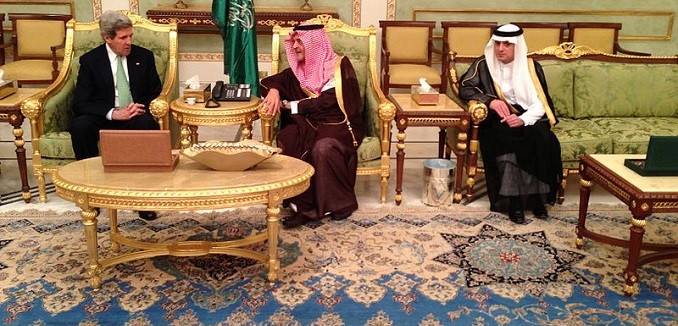Saudi officials have announced that they have evidence directly linking 18 people arrested last week on espionage charges to Iranian intelligence services. Among those arrested were 16 Saudis, an Iranian, and a Lebanese.
The public declaration – even more than the capture itself – is bound to increase tensions between Tehran and neighboring Arab states. Bahrain’s parliament this month formally declared that Hezbollah is a terrorist organization, citing among other things suspicions that the group was operating inside the country.
Tehran let it be known that it was outraged at the new Saudi accusations.
Sunni Saudi Arabia and Shiite Iran are engaged in proxy wars and political maneuvering across the Middle East, including in Syria, Bahrain, Iraq, Yemen, and Lebanon. In 2011, U.S. authorities revealed that Tehran had planned to assassinate Riyadh’s ambassador in Washington, and to bomb the Saudi and Israeli embassies in the city.
Al-Arabiya, the Saudi-owned pan-Arab satellite network, strongly implied the suspected spies are Shiites. Saudi journalist Jamal Khashoggi told the channel most are “from one sect,” Al-Arabiya’s website reported, before adding that there are an estimated two million Shiites in the kingdom. The Saudis have long charged Iran with stirring unrest among their Shiite citizens.
Writing in the government-linked daily Arab News, columnist Zuhair Al-Harthi observed that Tehran’s foreign policy thrives on exporting instability and that “if Iranian involvement is indeed proven … I personally think that matters will have gone too far that and enough is enough.”
Gulf states have begun routinely and with increasing frustration denouncing Iranian activity in the region. In recent months Iran has been blasted by Arab states for, among other things, providing “logistic help to terrorist operations” in Gulf countries; training, arming, and financing a “terrorist cell” in Bahrain; and engaging in regional “interference.”




